Historical markers in Lafayette County celebrate architecture, sites from the past
Published 6:09 pm Monday, March 18, 2024
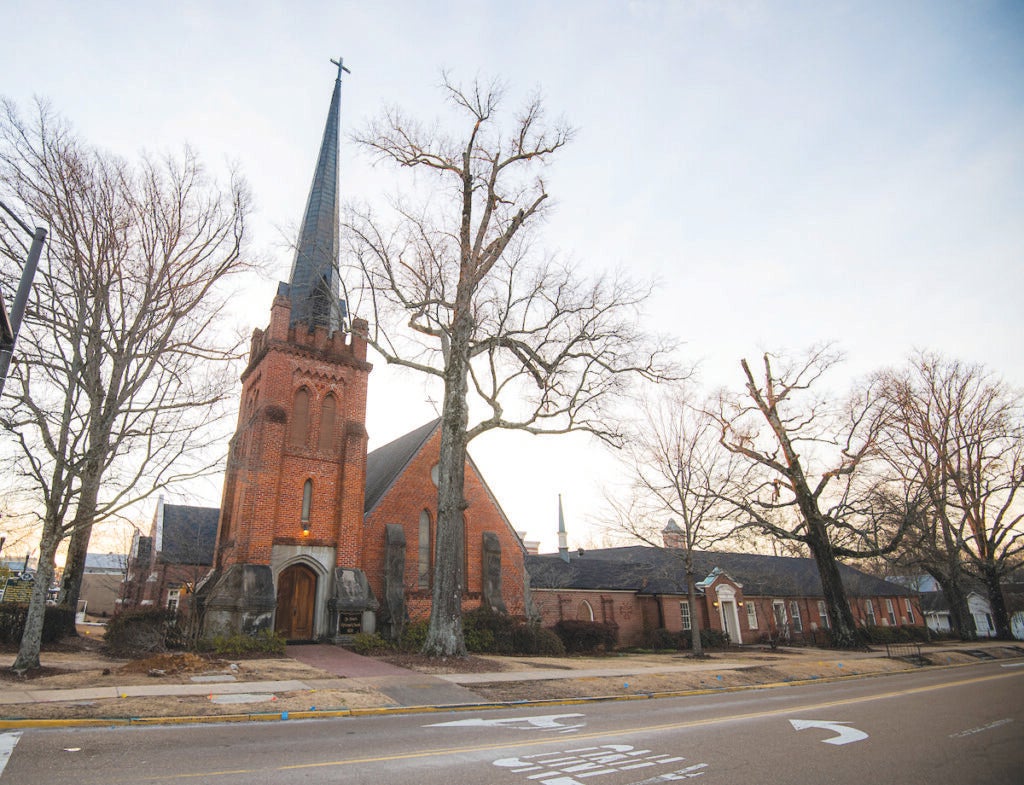
- St. Peter’s Episcopal Church was organized in 1851 and held its first service on Easter Sunday in 1860 in this building on South 9th Street and Jackson Avenue. (Bruce Newman)
National historical markers in Oxford and Lafayette County mark the spots to tell the stories of significant places and events.
Photos by Bruce Newman
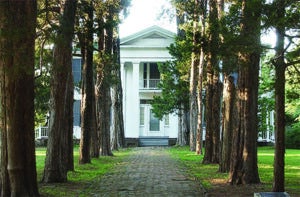
Built in the 1840s, this house was owned by Nobel Prize-winning author William Faulkner from 1930-1962. Faulkner named it Rowan Oak. The house is now maintained by The University of Mississippi. (Bruce Newman)
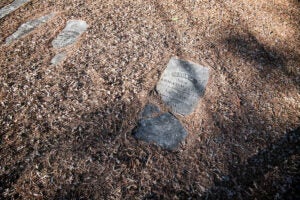
The grave of John J. Craig, an early settler, is located in the Buckner-Craig-Isom Cemetery on Old Taylor Road. Craig purchased Indian lands that later became Oxford. (Bruce Newman)

A Bible sits on a podium at College Hill Presbyterian Church in Oxford Sunday, May 10, 2015. The church was organized between 1844-1846. On Saturday, Aug. 13, 2022, at approximately 10:30 p.m., the church was heavily damaged by fire. (Bruce Newman)
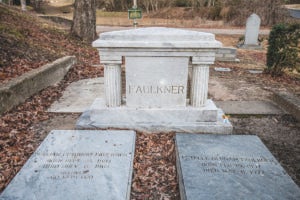
Nobel Prize-winning author William Faulkner, who died in 1962, is buried in St. Peter’s Cemetery. (Bruce Newman)
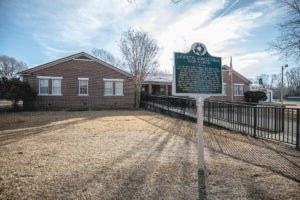
Lafayette Agricultural High School was located in this building in the College Hill community. (Bruce Newman)
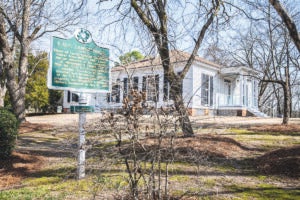
The LQC Lamar House, built by Lucius and Virginia Lamar in 1869-70, is located on three acres at 616 N. 14th St. in Oxford. (Bruce Newman)
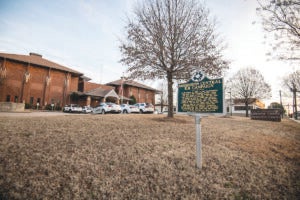
On Dec. 8, 1862, Union Gen. Ulysses S. Grant and Gen. William Tecumseh Sherman met during the Civil War, where they made plans to capture Vicksburg. The Lafayette County Detention Center is now located there. (Bruce Newman)
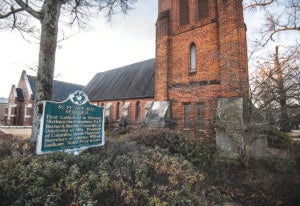
St. Peter’s Episcopal Church was organized in 1851 and held its first service on Easter Sunday in 1860 in this building on South 9th Street and Jackson Avenue. (Bruce Newman)

Oxford’s first African-American Church, called Sewell Chapel, was located in this spot on Jackson Avenue. Burns Methodist Episcopal Church was completed in 1910 and was used until 1974, when the church relocated. The building’s restoration was completed in July 2013 and is now the Burns-Belfry Museum Multicultural Center. (Bruce Newman)





